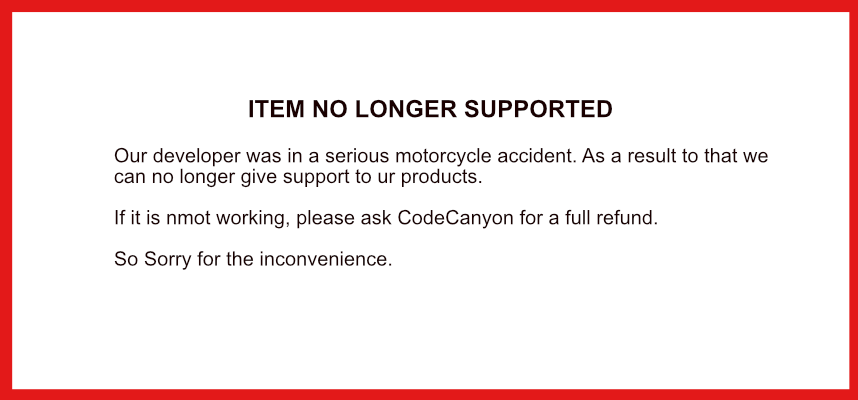Disadvantages of Using WordPress Plugins
Today I’m going to share some insights about the disadvantages of using WordPress plugins. As a happy WordPress connoisseur, I absolutely love finding and including great plugins into my websites. The advantages of using these plugins are obvious! Their use enables us to add to our sites both functionality and style, quickly and easily, and usually without having to know any special code or knowledge. Most WordPress users, and even designers, are very quick to install plugins, but we often do so without considering the consequences or disadvantages.
Real Life Example Showing the Disadvantages of Using WordPress Plugins
I recently attended an online webinar for WordPress plugin training, taught by a trusted WordPress expert. During the webinar he shared about some new and useful free and premium paid plugins. The timing was perfect because I happen to be searching for one specific plugin to make my navigation menus work perfectly on mobile devices. After the webinar I immediately went over to Code Canyon and purchased the plugin. I installed the plugin on the site and within minutes I had the perfect mobile menu up and running with no problems! I sent a bill to the client, got paid and thought I was very clever for solving this issue so quickly and easily. Well, I was WRONG!

I was so pleased my new plugin worked perfectly, but a couple weeks after installation I received an unfortunate notice from the plugin developer. How sad to hear, their developer for the plugin I purchased was in a serious accident and they stated they would no longer be able to provide support or updates. As a reputable firm, they offered refunds for everyone. So, while I’m very sorry to hear about this accident, I now must find another plugin or build one myself.
The Point of the Story
Plugins are great but if the developer stops providing support and updates, the users are sunk! I suggest, we should have a backup plan ready for each and every plugin used on our sites. Before installing any plugin think how you might be able to avoid using a plugin but achieve the same functionality on your own. Be honest! Are you just being a bit lazy, or do you really need the plugin.
Keep in mind, some plugins are so simple it’s not funny. I’ve seen some that only amount to a line or two of code and it would be very simple to build your own plugin! In fact, building a plugin for use on one custom site is much, much easier than building one for production. Of course, if you’re not a coder, one or two lines might as well be hundreds of lines! In my case, I could have fixed my site’s mobile menu on my own, without using the plugin. Unfortunately, I was too busy and needed to get the job done quickly and I paid the price later.
The Disadvantages of Using WordPress Plugins
- We are depending greatly on the plugin developers to provide updates. Essentially, when installing a plugin we are passing off control of a portion of our site, to someone else. This can be especially troublesome if using free plugins because the developer owes you nothing!
- Some plugins are poorly written and will dramatically slow your site down! Only use plugins from trusted sources. If installing a free plugin, be sure it’s one with many users and great reviews. The more users, the better chance the developer will keep providing updates. One great source for premium plugins is CodeCanyon.
- Beware of page builder plugins. While these plugins can do some amazing things, most are resource hogs and they will slow down your site. Also, if the developer quits providing support or the plugin fails, your site could be left looking like gibberish! We recommend to consider all options carefully before moving forward with page builders! BTW, there are a few really outstanding page builder plugins available in today’s marketplace. I have first hand experience and can highly recommend Beaver Builder. Yes, this is an affiliate link.
- Do your homework BEFORE installing a plugin, especially those using javascript. Some plugins don’t play well together so it’s worth it to check this out first. One of my favorite WordPress instructors is a man by the name of Benjamin Bradley over at WPStudio. He once said something like, “one poorly written plugin could cause more problems and slow our sites down more than 20 well coded plugins. That being said, pick and choose wisely and be sure to consider any specific disadvantages of using WordPress plugins before loading them up.
Too Many Plugins Will Slow Your Site
Since much or my work is focused on repairing poorly performing WordPress websites, I have first hand experience seeing how some designers really don’t get WordPress! Yes, they make some very attractive websites but at the cost of page load speed and performance. Non developers typically solve ALL problems by installing a plugin. If they want to display testimonials, they install a specific plugin. If they want a slider, they install a plugin. I’ve seen sites with using 50 to 100 plugins when all they really needed was 10. If you’re good with custom post types, that alone can replace a number of plugins. I’m not trying to knock non-coders however I am suggesting to start focusing on performance, first. After all, what good is a gorgeous website if it performs so poorly your visitors don’t stay on your site?
Moving Forward With WordPress Plugins
I will NEVER stop using plugins and I believe the advantages far outweigh the disadvantages. I have a good solid foundation in HTML, CSS, Javascript and PHP for WordPress. Most of the plugins I use with my custom web design services are well coded, premium plugins. My goal is to limit the use of plugins on each of my sites as much as possible. I research every plugin BEFORE installing and only use those plugins I really need. Then, if it’s just a few lines of simple php code I use my own code, not a plugin.
I’d love to hear your comments and hope you enjoyed learning about the Disadvantages of Using WordPress Plugins.
